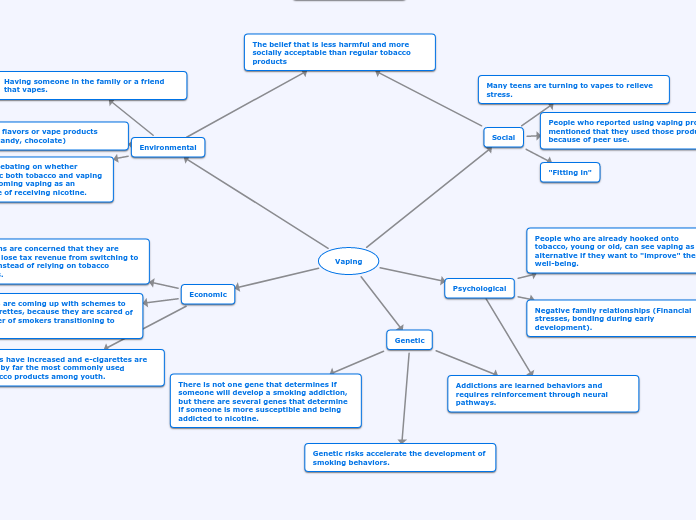Vaping
Economic
Politicians are concerned that they are going to lose tax revenue from switching to vaping instead of relying on tobacco products.
Politicians are coming up with schemes to tax e-cigarettes, because they are scared of the number of smokers transitioning to vaping.
Rates have increased and e-cigarettes are now by far the most commonly used tobacco products among youth.
Psychological
People who are already hooked onto tobacco, young or old, can see vaping as an alternative if they want to "improve" their well-being.
Negative family relationships (Financial stresses, bonding during early development).
Environmental
Having someone in the family or a friend that vapes.
Availability of flavors or vape products themselves (candy, chocolate)
Law makers are debating on whether denying the public both tobacco and vaping products, or welcoming vaping as an alternative source of receiving nicotine.
Social
The belief that is less harmful and more socially acceptable than regular tobacco products
Many teens are turning to vapes to relieve stress.
People who reported using vaping products mentioned that they used those products because of peer use.
"Fitting in"
Genetic
There is not one gene that determines if someone will develop a smoking addiction, but there are several genes that determine if someone is more susceptible and being addicted to nicotine.
Addictions are learned behaviors and requires reinforcement through neural pathways.
Genetic risks accelerate the development of smoking behaviors.
